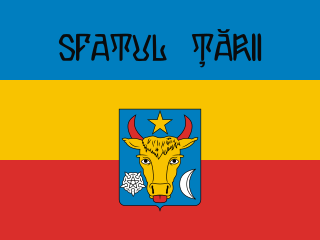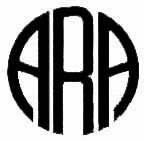
The politics of Moldova take place in a framework of a parliamentary representative democratic republic, wherein the prime minister is the head of the government, and a multi-party system.The President of Moldova has no important powers. The government exercises executive power while the legislative power is vested in the Parliament. The judiciary is independent of the executive and the legislature. The position of the breakaway region of Transnistria, relations with Romania and with Russia, and integration into the EU dominate political discussions.

The Social Democratic Party is the major social democratic political party in Romania founded by Ion Iliescu, Romania's first democratically elected president at the 1990 Romanian general election. The largest party in Parliament with initially 47 seats in the Senate and 110 seats in the Chamber of Deputies (as obtained at the 2020 Romanian legislative election, it also has the largest number of mayors as well as second largest number of local and county councillors and county presidents, thus still being the biggest and most influential political force in the country as of 2021.

The Latin Union was an international organization of nations that used Romance languages that existed as a functional institution from 1983 to 2012. Headquartered in Paris, France, its aim was to protect, project, and promote the common cultural heritage of Latin peoples and unifying identities of the Latin, and Latin-influenced, world. It was created in 1954 in Madrid, Spain, and its membership rose from 12 to 36 states, including countries in North America, South America, Europe, Africa, and the Asia-Pacific region.

Romanian Americans are Americans who have Romanian ancestry. According to the 2017 American Community Survey, 478,278 Americans indicated Romanian as their first or second ancestry. Other sources provide higher estimates for the numbers of Romanian Americans in the contemporary US; for example, the Romanian-American Network supplies a rough estimate of 1.2 million who are fully or partially of Romanian ethnicity. There is also a significant number of persons of Romanian Jewish ancestry, estimated at about 225,000.

The Organization of Ibero-American States, formally the Organization of Ibero-American States for Education, Science and Culture, is an international organization made up of 23 members states of Iberophone nations in Europe and the Americas, as well as one member in Africa. The OEI's membership is composed of all of the sovereign states of Ibero-America and the Iberian Peninsula, as well as Equatorial Guinea. All members are Portuguese and Spanish speaking nations, in addition to Andorra, which is predominantly Catalan speaking, though the organization does not include all the Iberophone nations of the world.

The Democratic Alliance of Hungarians in Romania is a political party in Romania representing the Hungarian minority of Romania.

Noua Dreaptă is an ultranationalist, far-right organization in Romania and Moldova, founded in 2000. The party claims to be the successor to the nationalist Iron Guard with the aesthetics and ideology being directly influenced by the fascist movement and its leader, Corneliu Zelea Codreanu.

The World Digital Library (WDL) is an international digital library operated by UNESCO and the United States Library of Congress.
The International Association of Friends of the Soviet Union was an organization formed on the initiative of the Communist International in 1927, with the purpose of coordinating solidarity efforts with the Soviet Union around the world. It grew out of existing initiatives like Friends of Soviet Russia in the United States, the Association of Friends of the New Russia in Germany, and the Hands Off Russia campaign that had emerged during the early 1920s in Great Britain and elsewhere.

The Romanian Cultural Institute, headquartered in Bucharest, was established in 2004 on the older institutional framework provided by the Romanian Cultural Foundation and before 1989 by the Institute for the Cultural Relations Abroad. Since 2005 it has undergone a tremendous development that has seen a solid increase in the number and geographic dispersion of its chapters, now 18-strong.
The Popular Front of Moldova was a political movement in the Moldavian SSR, one of the 15 union republics of the former Soviet Union, and in the newly independent Republic of Moldova. Formally, the Front existed from 1989 to 1992. It was the successor to the Democratic Movement of Moldova, and was succeeded by the Christian Democratic Popular Front and ultimately by the Christian-Democratic People's Party.

Sfatul Țării was a council that united political, public, cultural, and professional organizations in the greater part of the territory of the Governorate of Bessarabia in the disintegrating Russian Empire, which was transformed into a Legislative body and proclaimed the Moldavian Democratic Republic as part of the Russian Federative Republic in December 1917, and then union with Romania in April [O.S. March] 1918.

Romania–United States relations are the bilateral relations between Romania and the United States. US-Romanian diplomatic relations were formally established in 1880, with the appointment of Eugene Schuyler, a renowned and talented diplomat and historian, as the first American diplomatic representative to Romania. After Romania left the Eastern Bloc in 1989, US-Romanian relations have matured into a strategic partnership that encompasses a wide range of political, military, economic and cultural issues. The US supported Romania's entry into NATO, setting the stage for further integration into Europe. Today, Romania is a strong ally of the United States, and the two countries work together to build democracy, fight terrorism, and promote regional security and stability.
Ukrainian World Congress is a non-profit organization, nonpartisan association, international coordination assembly of all Ukrainian public organizations in diaspora. It represents the interests of over 20 million Ukrainians.
The Transylvanian Society of Dracula (TSD) is a cultural-historic, non-profit, non-governmental organization. Its members include Romanian and international scholars, folklorists, historians, esoterists, writers, cultural anthropologists, and individuals interested in comparative religion, magic and mythology. The TSD organizes scholarly activities both in Romania and abroad, as well as tours to sites of TSD interest in Romania. Some high ranked Romanian members make money out of the touristic activities of the organization, through the Company of Mysterious Journeys tourist agency. Modifications to this agency have occurred since the founder Nicolae Paduraru died. The Halloween 2011 tour, for example, did not include Bran Castle or Curtea Veche -in spite of what was published in their web site-, but it included a beauty pageant. One of the Romanian members of TSD working at the agency was one of the presenters of such pageant.

Nicolae Dabija was a writer, literary historian and politician from the Republic of Moldova, honorary member of the Romanian Academy and correspondent member of the Academy of Sciences of Moldova (2012).

The American Romanian Academy of Arts and Sciences (ARA) is a scholarly organization dedicated to the analysis, study and dissemination of Romanian contributions and accomplishments. To enhance these efforts, ARA combines Western and Romanian intellectual traditions, encourages communications and serves as a point d'appui in the Western World for Romanian academics and intellectuals. ARA is duly incorporated in the State of California as a non-profit tax-exempt organization. It is organized in conformity with the pertinent laws and regulations of the state of California and the United States of America. ARA conducts and supports multidisciplinary studies in exact sciences, mathematics, natural sciences, and also supports the arts, linguistics, literature, political studies and sociology. As an institution its main goal is to foster cultural exchanges between the American and Romanian cultures. ARA was founded in California in 1975 by a group of American-Romanians, and in 2014 has 119 elected members, 81 corresponding members, and 59 honorary members.
The Society for Romanian Studies (SRS), founded in 1973, is an international inter-disciplinary academic organization dedicated to Romanian studies. It draws its members – junior and senior scholars, graduate students, and government experts – primarily from North America, Romania, the Republic of Moldova and Western Europe. Through its activities, the SRS wishes to facilitate academic exchange within and across a multitude of disciplines, including history, sociology, geography, anthropology and ethnography, political science, philosophy, law and justice studies, literature and linguistics, economics and business, international affairs, religious, gender, film and media studies, art history, music and education. The society understands Romanian studies broadly to encompass political, socioeconomic and cultural developments in Romania and the Republic of Moldova, the situation of their ethnic minorities and their relations with the ethnic majority, as well as the position of Romanians and Moldovans living outside those countries.
Dank or DANK may refer to:












